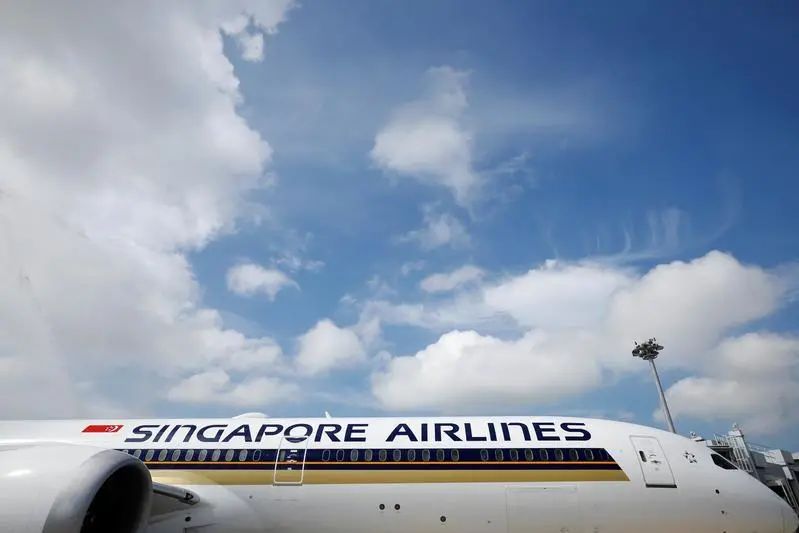PHOTO
SINGAPORE (Reuters Breakingviews) - India could give Singapore Airlines a lift. The $8 billion group posted dismal quarterly earnings. But opportunity may be knocking, as indebted rival Jet Airways comes into play. A deal by Singapore’s influential Indian partner Tata would bring newfound clout in a promising growth market.
It was always going to be a difficult first half for the city-state's flag carrier, still in the throes of a turnaround plan. Higher oil prices drove net fuel costs up almost a quarter in the three months to September. Meanwhile, impairments and other charges at part-owned Virgin Australia hit too. The result was a drop of over 80 percent in quarterly earnings, with regional arm SilkAir and low-cost Scoot posting operating losses, too.
More worrying was Singapore Airlines' struggle to pass on higher costs to customers, in contrast to rivals like Cathay Pacific. It carried more passengers, but yields, a proxy for prices, slipped just over 2 percent year-on-year.
True, cut-throat competition in India has pushed ticket prices to the floor and carriers to the wall, from state-owned Air India to top player IndiGo, and loss-making Jet. But it remains one of the world's fastest-growing markets, and an inflection point may be near: Jet, controlled by tycoon Naresh Goyal and backed by United Arab Emirates carrier Etihad, is bleeding and buyers are circling, including the Tatas.
Singapore has a foothold in India through Vistara, but this venture with Tata only has a sliver of the market. If the Indian group - which also has a separate low-cost airline - can win control of Jet, the smaller operations could be folded into it. Singapore could benefit from slots in crowded airports through a stake in the subcontinent's top full-service carrier. It would be far easier too than trying to turnaround sprawling state-owned Air India, which was recently up for sale.
For now, Singapore is pressing ahead with its own revamp, and a costly push into the United States. It can afford to let Tata test the waters. India is one of the toughest aviation markets - but with 1.3 billion people, it’s also one of the most enticing.
CONTEXT NEWS
- Singapore Airlines said on Nov. 13 that second-quarter earnings for the three months to the end of September fell 81 percent to S$56 million ($40.6 million), from a restated S$293 million a year earlier. Excluding a loss relating to its minority stake in Virgin Australia, the company’s adjusted net profit was S$172 million, down 41 percent.
- Net fuel costs for the group in the quarter rose 24 percent, while costs excluding fuel rose just over 4 percent.
- Quarterly group revenue grew 5.6 percent to S$4.1 billion, but passenger yields, a proxy for ticket prices, fell 2.2 percent, indicating the company has lagged rivals like Cathay Pacific in raising fares.
- Regional airline SilkAir and low-cost carrier Scoot both posted operating losses in the second quarter.
- Singapore Airline shares are down 12 percent so far this year. In morning trading on Nov. 14, the first trading day after the earnings, the stock was down 1.4 percent at S$9.29.
(Editing by Una Galani and Katrina Hamlin)
© Reuters News 2018





















